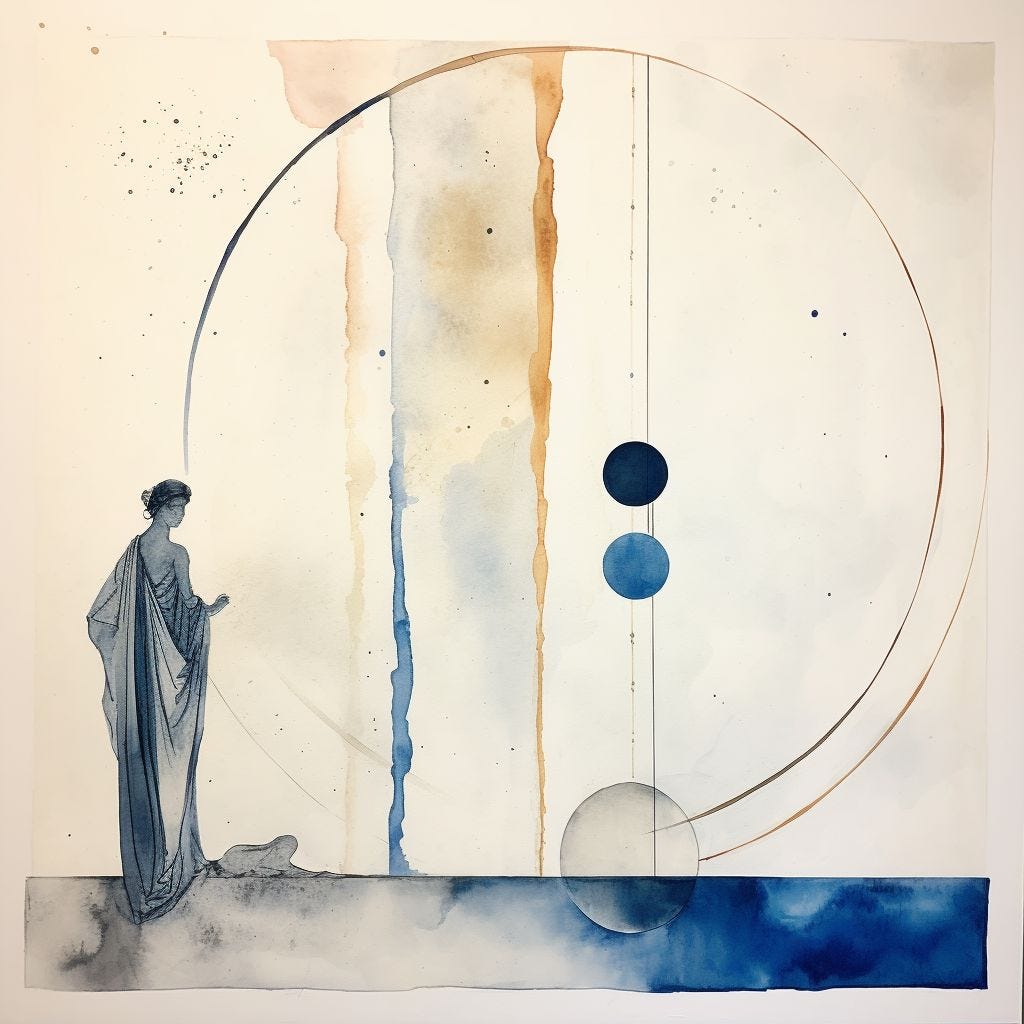Philosophy as a Way of Life
The ancient vision of philosophy
Welcome to The Stoa Letter, the newsletter on Stoic theory and practice.
Each email includes one meditation on Stoic theory, one action to do in order to become more Stoic, and links to the best resources we’ve found.
🏛️ Theory
In their view, philosophy did not consist in teaching an abstract theory – much less in the exegesis of texts – but rather in the art of living.
Pierre Hadot, Philosophy As A Way of Life
The ancient philosophers saw it as a way of life. Philosophies like Stoicism are accounts of what a good life is and instructions on how to get there. They were playbooks for living well. Fundamentally, each one was a matter of theory and practice. The philosopher needs the theory to know where they are going and how to improve their thinking. Then they must train to become who they are meant to be.
Philosophies are ultimately transformative. They offer the promise to become resilient and live a meaningful life. They start with changing ourselves, not the world. It’s not the externals that are the true obstacles to happiness, but who we are. Philosophies like Buddhism, Confucianism, and Stoicism all start with improving our desires, thinking, and character.
Philosophy was not just an academic enterprise. It was ingrained in the everyday lives of the ancients. Socrates realized his philosophy in his life as a citizen, warrior, teacher, husband, and speaker. Renowned for his valor, sociability, and relentless questioning, Socrates was the model for philosophical living. As they say, the philosopher is someone who does ordinary things in an extraordinary way.
Here’s to becoming more philosophical.
🎯 Action
Bring to mind what your philosophy of life is and how you’ll practice it concretely today.
🔗 Resources
🏛️ We've added a new series on Philosophies of Life to the Stoa app. It includes introductions to philosophies other than Stoicism: Epicureanism, Cynicism, and Skepticism. Listen here.

📚️ Pierre Hadot’s Philosophy as a Way of Life captures the philosophical focus on “the art of living.” Here, he usefully highlights a core similarity of the practical ancient schools:
In the view of all philosophical schools, mankind's principal cause of suffering, disorder, and unconsciousness were the passions: that is, unregulated desires and exaggerated fears. People are prevented from truly living, it was taught, because they are dominated by worries. Philosophy thus appears, in the first place, as a therapeutic of the passions…Each school had its own therapeutic method, but all of them linked their therapeutics to a profound transformation of the individual's mode of seeing and being.
Pierre Hadot
What did you think about today's letter?
🏆️ Share The Stoa Letter
If you find what we’re doing useful, please share it. Just have people sign up with your link below.
Share The Stoa Letter
{{rp_personalized_text}}
Or copy and paste this link to others: {{rp_refer_url_no_params}}
Get hundreds of Stoic meditations and lessons with the Stoa app (free download)

